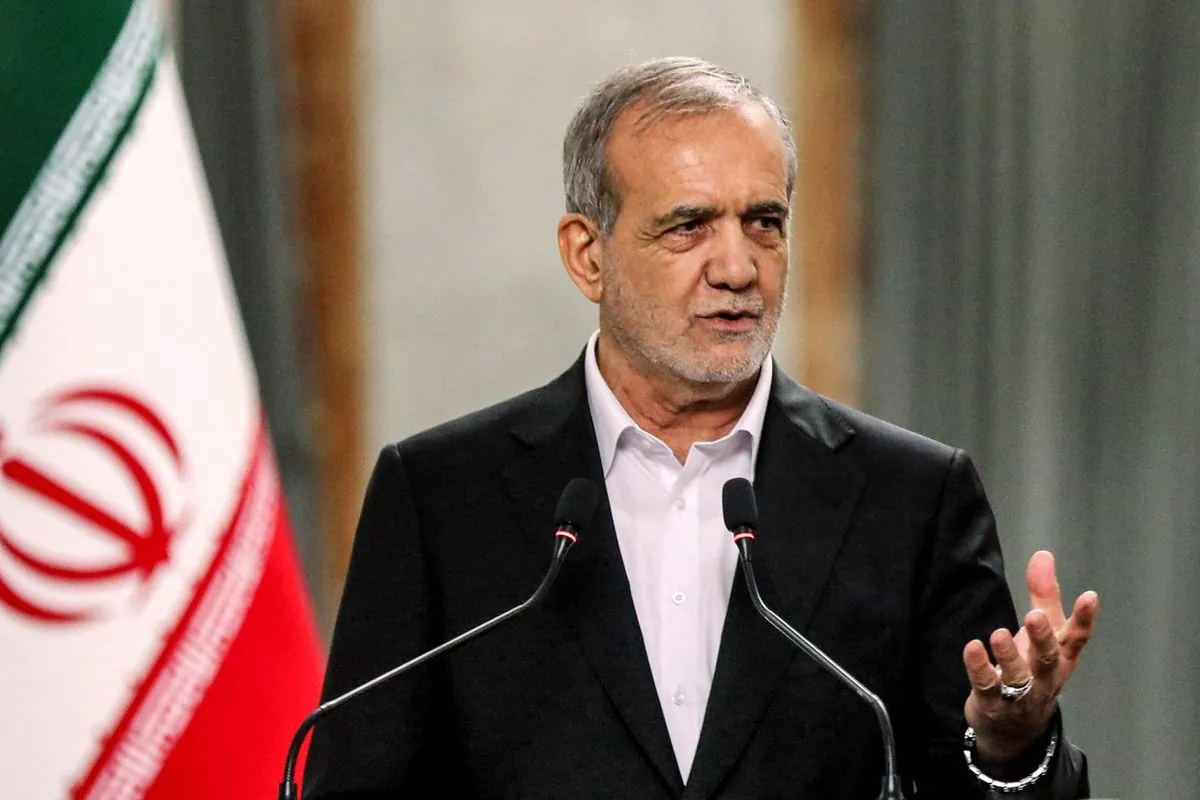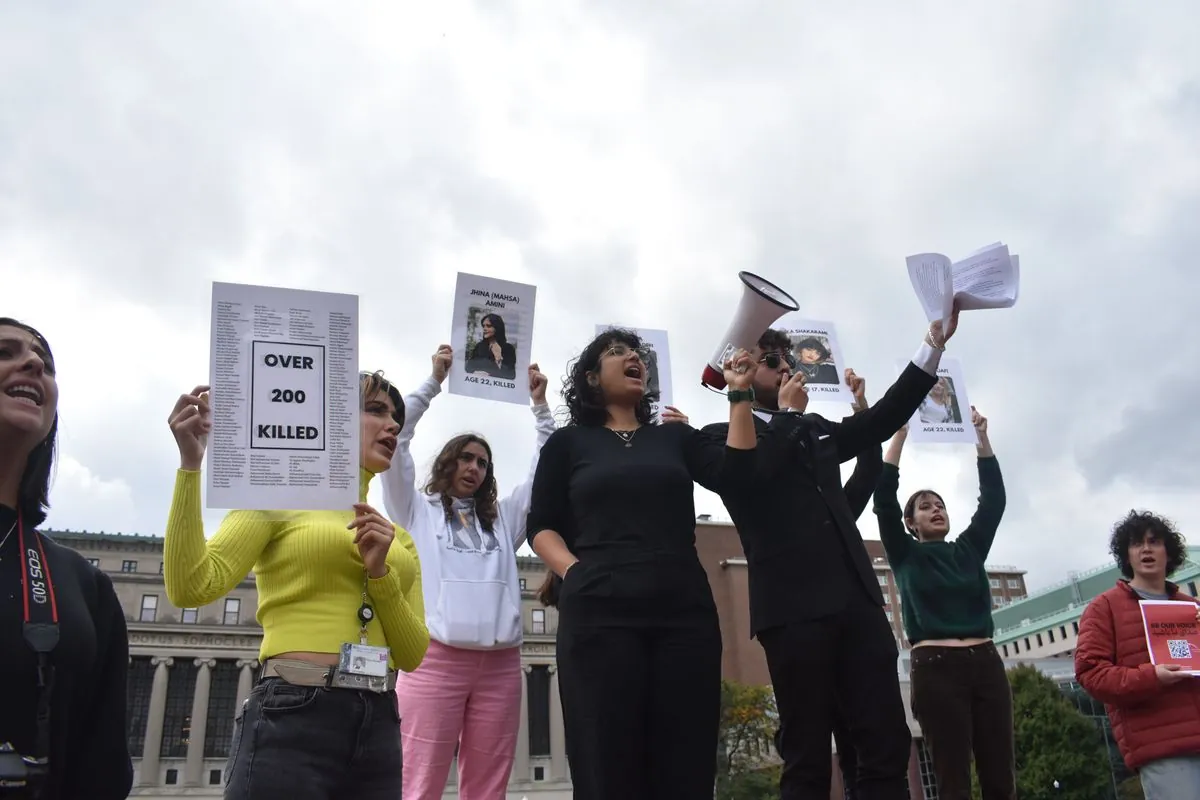Iran's President Vows Response to Israel, Denies Involvement in US Protests
Iranian President Masoud Pezeshkian addresses Israel's actions, support for Hezbollah, and denies involvement in US campus protests. He also discusses women's rights and Iran's stance on the Russia-Ukraine conflict.

In a recent address at the United Nations General Assembly, Masoud Pezeshkian, the newly elected President of Iran, discussed several pressing issues concerning his nation's foreign policy and domestic affairs. The assembly, established in 1945, serves as a global forum for international dialogue and cooperation.
Pezeshkian, who assumed office in July 2024, stated that Iran would respond to Israel's actions, particularly the assassination of a Hamas leader in Tehran. However, he emphasized that Iran does not wish to destabilize the region. This statement comes amidst ongoing tensions between Iran and Israel, which have been at odds since the Iranian Revolution of 1979.
The Iranian president defended his country's support for Hezbollah, a Lebanese militant and political group formed in 1982. He argued that this backing was necessary as long as Israel continues to receive military aid from the United States. Pezeshkian's stance reflects Iran's complex role in regional politics, which has been shaped by decades of conflict and diplomatic tensions.
"We always keep hearing, 'Well, Hezbollah fired a rocket.' If Hezbollah didn't even do this minimum, who would defend" the Palestinians
Addressing allegations of Iranian involvement in pro-Palestinian campus protests in the United States, Pezeshkian firmly denied these claims. He dismissed the idea that Iran could finance such activities, given its domestic economic challenges. Iran's economy, largely dependent on oil and gas exports, has faced significant pressure due to international sanctions imposed since 1979.

When questioned about the imprisonment of Nobel Peace Prize laureate Narges Mohammadi, Pezeshkian avoided a direct answer. Instead, he highlighted his appointment of four women to influential positions in his administration. This response reflects the ongoing debate about women's rights in Iran, a topic that has been contentious since the establishment of the theocratic government following the 1979 revolution.
Regarding the Russia-Ukraine conflict, Pezeshkian denied that Iran had supplied Russia with ballistic missiles. He stated that Iran does not seek war in Ukraine and has not approved Russian aggression against Ukrainian territory. This assertion comes amid international concerns about Iran's potential role in supporting Russia's military actions.
Throughout his address, Pezeshkian touched on various aspects of Iran's complex political system, which includes both elected and unelected institutions. As the leader of a nation with over 85 million people and the world's second-largest natural gas reserves, his statements carry significant weight in international affairs.
The Iranian president's comments at the UN General Assembly highlight the intricate web of regional and global issues that Iran navigates. From its support for groups like Hezbollah to its stance on the Russia-Ukraine conflict, Iran's actions continue to shape Middle Eastern politics and beyond. As the international community watches closely, the coming months will reveal how Pezeshkian's words translate into action on the global stage.


































